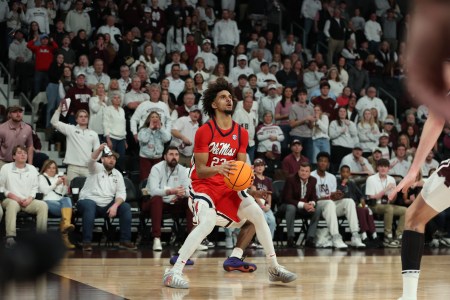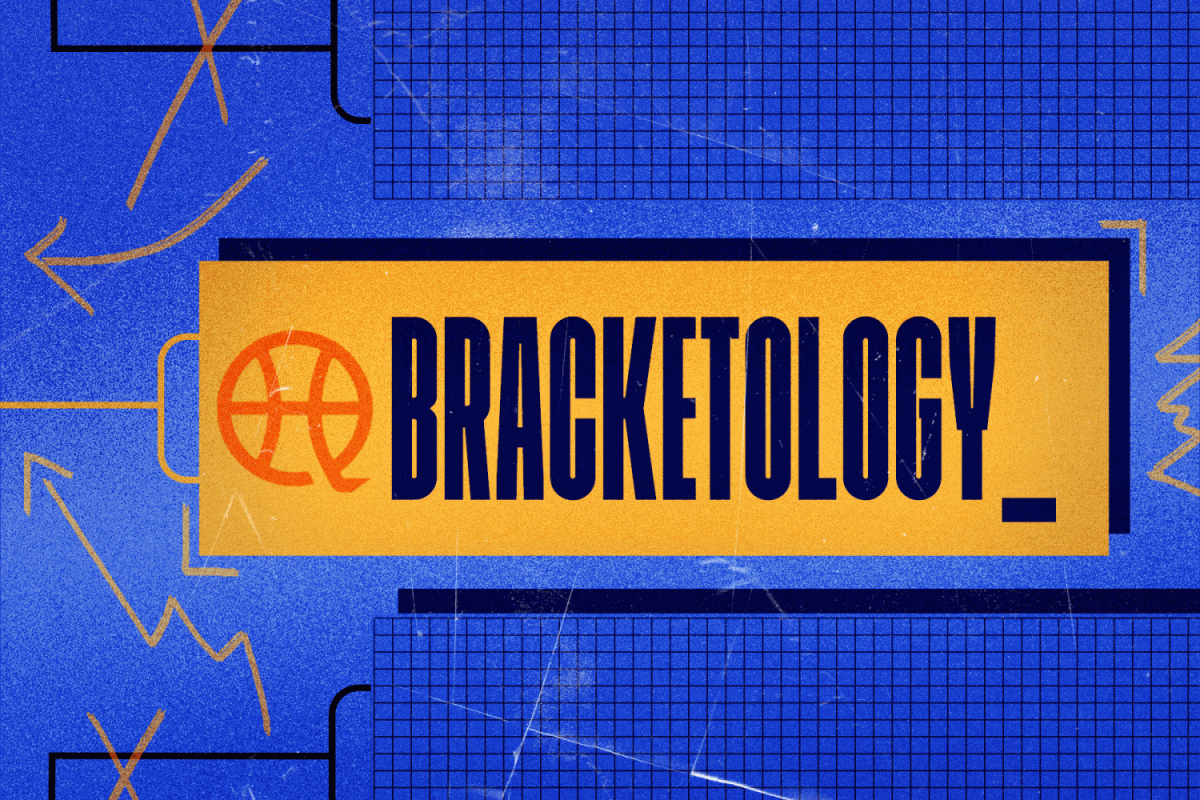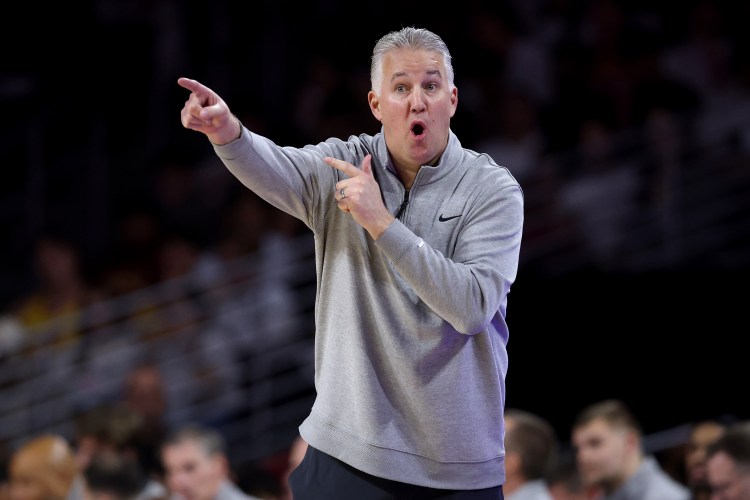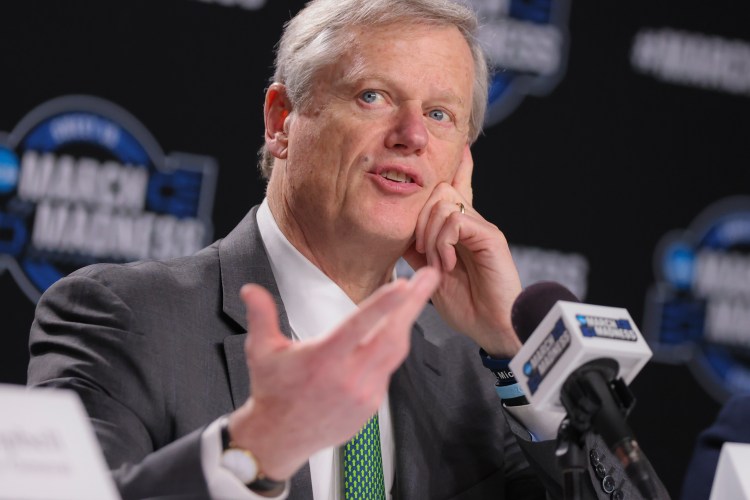What’s in a name?
For Treysen Eaglestaff, the North Dakota basketball star who made national headlines by scoring 51 points in a Summit League tournament game this month, there’s both pride and pressure. In North Dakota, especially among the state’s Native American population, the Eaglestaff name means a lineage of great athletes, headlined by Treysen’s great uncle, Robert Eaglestaff, who played collegiately at BYU and then North Dakota.
It also meant that every time Treysen stepped on a court, from the YMCA to the reservations to high school games, all eyes were on him. “The pressure’s always been there,” Eaglestaff tells Hoops HQ. “There’s not a lot of Division I players in North Dakota. And especially being Native American, there’s maybe five in the United States right now. Maybe less.”
Next season, Eaglestaff will be looking to make a name for himself on a much bigger stage. He entered the NCAA’s Division I transfer portal when the season ended and drew interest from Kansas, Kentucky, Gonzaga, Rutgers, Iowa and Oklahoma State, among other power conference schools. On Sunday, Eaglestaff committed to South Carolina. He said Gamecocks coach Lamont Paris was the first coach to call him when he hit the portal and recruited him the most diligently. The two developed a quick level of trust.
Eaglestaff and his mother went to Columbia, S.C. on an official visit before the April dead period began. In addition to spending time with the basketball staff, whom they had gotten to know over Zoom calls, Treysen and his mother attended a South Carolina baseball game and went to a Gamecocks football practice, where he met coach Shane Beamer. By the time the visit was over, Eaglestaff was sold. He canceled the other visits he had scheduled for later in the month and committed to South Carolina.
Eaglestaff was represented in his negotiations by George Langberg of GSL Sports Group. Eaglestaff said the NIL offer he received from South Carolina was “more than I expected.” And now that he’ll be playing in the SEC, Eaglestaff wants to make the most of his opportunity, on and off the court. “There are people who have a voice and don’t use it,” he said. “I’m going to make sure people hear me and I can represent my people and my community.”
According to the NCAA’s demographics database, there were 544 Division I athletes across all sports who identified as American Indians/Alaskan Natives in 2024, accounting for less than one percent of all athletes. Being unique in this regard is nothing new for Eaglestaff. As he became a successful college basketball player, Eaglestaff has long felt the weight of playing for something larger than himself. “The pressure got to me at times,” he said. “But also, everyone has my back, because as Native Americans, we’re all one big family. We all want each other to succeed. Knowing that support is behind me, the pressure’s lighter.”
Eaglestaff spent most of his summers visiting his half-brothers at Cheyenne River, a reservation at Eagle Butte, S.D., where he was constantly pushing them to play ball. “He lives in the gym,” said his younger brother, Teysean, who just completed his freshman season at Missouri Kansas City. “That’s like his second home. Ever since he was younger, just his dedication to the game, he always worked hard. Whenever he’d come visit, he wanted to get us to go play in the gym or workout. Ever since he was younger, we knew he was going to be something special.”

Eaglestaff’s father, Lance, lives on the reservation at Eagle Butte. Treysen is close with all of Lance’s children, but he describes their relationship as respectful but distant. “He wasn’t there going up,” Treysen says. “I have no hatred toward him. I did when I was younger.” As the son of a single mother who worked three jobs in Bismarck, Eaglestaff went from using basketball as a hobby to seeing it as a path to pay back his mom for her sacrifices. “I didn’t want to just be a local YMCA basketball player when I grew up,” he said. “I wanted to do something. I wanted to pay for my college so my mom doesn’t have to worry about anything.”
Eaglestaff was a typical young basketball player, loving the sound of bouncing balls and the swish of nets. When he moved up to high school, he played on the freshman team, didn’t really sniff varsity, and was widely projected to be with the junior varsity squad as a sophomore. But Eaglestaff decided he wanted to get serious. He combined hours in the gym and working out with a well-time growth spurt, helping him make the varsity squad at Bismarck High School as a sophomore for coach Jordan Wilhelm. He wore an extra large No. 52 jersey that season because as the last player to make the team, he picked his jersey last. Eaglestaff has kept grinding ever since.
“He’s the kind of kid, we’d get done with a grueling, two-and-a-half hour practice and a weight session, and I’d get texts from people in the community that he was at the YMCA until 10 that night,” Wilhelm said. “Then, he’d text me at 10 o’clock and ask me to open up the gym at 6 a.m. the next morning.”
Eaglestaff and his mother didn’t have the money for him to play high-level AAU ball until his senior year, but Wilhelm worked to spread the word about the electric scorer to every Division I program in the region. For Eaglestaff, who graduated high school at 17, the chance to stay home and remain close to his mother and brothers was the dream scenario, and that came true for him when North Dakota — the alma mater of his uncle, Robert Eaglestaff — offered him a Division I scholarship.
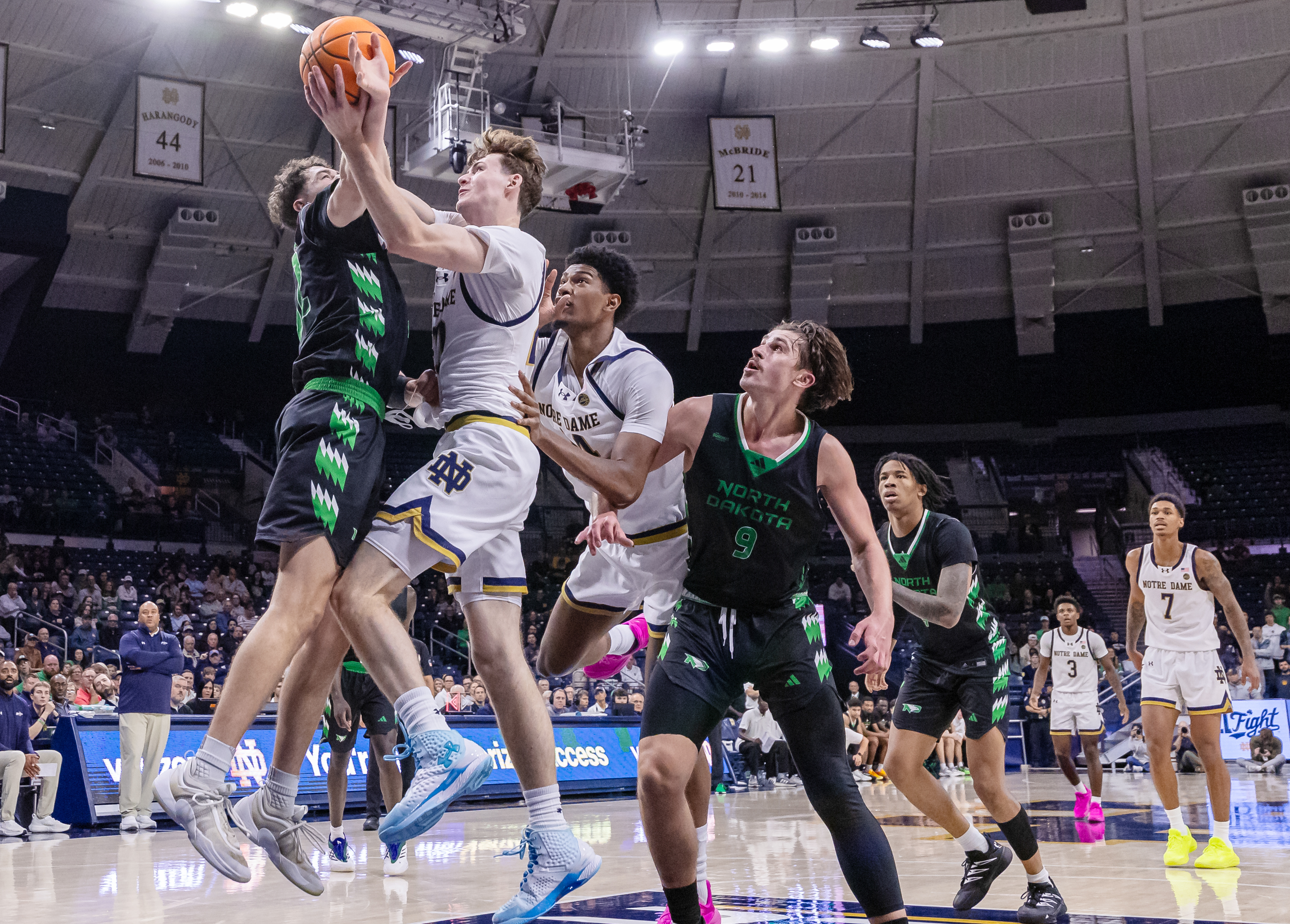
“He was a legend in Native American eyes,” Treysen said. “He was playing Division I basketball as a Native American in the seventies. Those were hard times. There were stories about him playing games and the crowd would have pictures of hanging natives. They’d try to get in his head. They’d spit on him and tell him to go back to the Rez. It was hard for him, but he did a lot for his community.”
That’s been part of what drives Eaglestaff. His role, playing time and production have gone up each year. For the past two seasons, he has been the Hawks’ primary ball-handler. This year, the smooth-shooting, 6-foot-6 guard averaged 18.9 points to go along with 2.8 rebounds and 2.4 assists per game, helping North Dakota reach the Summit semifinals before its season ended with a loss to second-seeded St. Thomas. He scored 31 against Utah Valley in the third game of the season, and went for 40 against Alabama. He scored 20 or more points 13 times (and tallied exactly 19 in three others.)
Still, he hadn’t had a game like the Summit League quarterfinal since his high school days. As a senior at second-ranked Bismarck, he scored 52 points and had 11 rebounds and nine assists in a 106-103 win over Bismarck Century, the No. 1-ranked team in the state, breaking his own school record for points in a game. “It was the most ridiculous performance I ever witnessed live,” Wilhelm said.
Eaglestaff labeled his 51 against South Dakota State as his best game, in part because it was played in front of a partisan crowd in Sioux Falls, S.D. “I had a pretty good overall season,” Eaglestaff said. “I don’t know if that game helped my case, but it’s certainly something to look at.”
Next season, a lot more people will be looking at Eaglestaff on the basketball court. As a player, it is another dream come true. As a Native American, it is an affirmation of the possibilities that come as a result of persistence, belief and community pride. “Why not you?” Eaglestaff said. “If you put the time in and the work in, good things can happen for you.”



